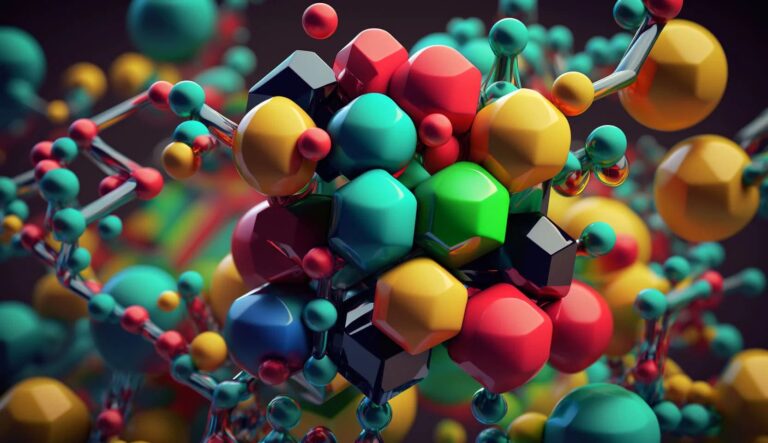Dihydromyricetin (DHM) is a natural compound belonging to the flavonoid family, which consists of a diverse group of plant-derived phytonutrients. These flavonoids are often celebrated for their antioxidant, anti-inflammatory, and anti-cancer properties[1]. DHM has gained significant attention in recent years for its potential in mitigating the undesirable effects of alcohol consumption, such as hangovers and liver damage.
Origin and Sources of DHM
DHM is primarily found in the leaves and stems of the Japanese Raisin Tree (Hovenia dulcis) and Vine tea (Ampelopsis grossedentata), two plant species native to East Asia. These plants have been utilized in traditional Chinese and Japanese medicine for centuries to treat various ailments, including alcohol-related illnesses.
Traditional Uses of DHM
In traditional Chinese medicine, DHM has been employed to counteract the toxic effects of alcohol and alleviate hangover symptoms. It has also been used to treat fever, inflammation, and liver disorders, and as a general health tonic[2].
DHM’s Impact on Alcohol Metabolism
How DHM interacts with alcohol in the body
To fully appreciate the impact of DHM on alcohol metabolism, it’s essential first to understand how our bodies process alcohol. When we consume alcohol, our body breaks it down through a series of biochemical reactions. There are two enzymes that play an important role in these biochemical reactions:
A) Alcohol Dehydrogenase (ADH)
B) Acetaldehyde Dehydrogenase (ALDH)
Alcohol –> Acetaldehyde(Toxic)
The enzyme ADH converts Ethanol into Acetaldehyde. Acetaldehyde is an extremely toxic compound up to 30x more harmful than alcohol and is a significant contributor to many adverse effects associated with alcohol, such as hangovers and Asian flush.
Acetaldehyde –> Acetate(non-toxic)
Acetaldehyde is then further metabolized by ALDH into acetate, a relatively harmless substance that can be quickly expelled from the body[3]. DHM supercharges your body’s natural detoxification process by increasing the rate of acetaldehyde metabolism, thereby reducing overall exposure to this toxic substance.
DHM’s influence on the alcohol breakdown process
DHM has been found to exhibit several actions that aid in alcohol metabolism, including its ability to increase the activity of alcohol dehydrogenase (ADH) and aldehyde dehydrogenase (ALDH)[4]. ADH is responsible for converting alcohol into acetaldehyde, while ALDH is involved in the subsequent conversion of acetaldehyde into acetate. By enhancing the activities of these enzymes, DHM accelerates the breakdown and elimination of alcohol and its toxic byproducts from the body, potentially reducing the severity of hangovers and liver damage associated with excessive alcohol consumption.
Potential Benefits of DHM for Reducing Hangovers and Liver Damage
How DHM alleviates hangover symptoms
Hangovers are a common consequence of excessive alcohol consumption and are characterized by symptoms such as headache, fatigue, nausea, dizziness, and dehydration. DHM’s potential to alleviate hangovers is thought to stem from its ability to accelerate alcohol and acetaldehyde metabolism, reducing the duration of exposure to these harmful substances[5].
Additionally, DHM’s antioxidant and anti-inflammatory properties may help counteract the oxidative stress and inflammation associated with hangovers[6]. A study conducted by Shen et al. (2012) found that rats treated with DHM exhibited a reduced duration of alcohol-induced sleep, suggesting that DHM could counteract the sedative effects of alcohol and potentially alleviate hangover symptoms[4].
DHM’s essential role in protecting liver health
The liver is responsible for metabolizing alcohol and is particularly susceptible to alcohol-induced damage. Excessive alcohol consumption can lead to various liver disorders, such as fatty liver, alcoholic hepatitis, and cirrhosis. DHM’s potential to protect the liver from alcohol-related damage is attributed to its ability to enhance alcohol metabolism and its antioxidant and anti-inflammatory properties[5], and there is an abundance of scientific literature to back up these claims!
In a study by Chen et al. (2015), DHM was shown to improve liver function in patients with nonalcoholic fatty liver disease by reducing liver inflammation and promoting lipid metabolism[2]. A more recent study in 2020 also found that DHM as a dietary supplement reduced alcohol-induced liver injury via changes in lipid metabolism, enhancement of alcohol metabolism, and suppressed inflammation responses to promote liver health[7].
How DHM Prevents Intoxication
Mechanism of DHM’s action against intoxication
One of DHM’s most remarkable properties is its ability to counteract the effects of alcohol intoxication. This occurs primarily through its interaction with GABA receptors in the brain, which play a crucial role in alcohol’s intoxicating effects. By binding to these receptors, DHM can reduce the impact of alcohol on the central nervous system, leading to a reduction in intoxication symptoms.
This intriguing mechanism was demonstrated in a groundbreaking study that showed that DHM effectively counteracted acute alcohol intoxication and withdrawal symptoms in rats. The study found that the administration of DHM reduced alcohol-induced motor impairment, loss of righting reflex, and hangover symptoms[4].
How DHM can help with alcohol addiction
Alcohol addiction, also known as alcohol use disorder, is a chronic condition characterized by compulsive alcohol consumption, loss of control over intake, and the presence of withdrawal symptoms when alcohol use is reduced or stopped. DHM’s potential to help with alcohol addiction lies in its ability to modulate GABA-A receptors in the brain, which are implicated in the reinforcing effects of alcohol and the development of alcohol dependence. DHM can improve the plasticity of GABA receptors, which helps the brain’s ability to return GABA levels to baseline
DHM’s Anti-Inflammation Properties
Inflammation is a common factor in many health issues, including those related to alcohol consumption.
A few ways excessive consumption of alcohol can cause inflammation in your body includes:
- Alcoholic Fatty Liver Disease: Excessive alcohol consumption can lead to the accumulation of fat in the liver, known as alcoholic fatty liver disease. This can cause inflammation within the liver and, in severe cases, progress to more serious liver diseases like alcoholic hepatitis or cirrhosis.
- Production of reactive oxygen species (ROS): The metabolism of alcohol by the liver generates ROS, which are unstable molecules that can damage cells and tissues. This oxidative stress can lead to inflammation as the body attempts to repair the damage.
- Increased gut permeability: Alcohol consumption can damage the lining of the gastrointestinal tract, leading to increased gut permeability. This allows harmful bacteria and toxins to enter the bloodstream
DHM has been found to possess strong anti-inflammatory properties, which can contribute to its beneficial effects on the liver and other organs. One study conducted by Tang et al. (2016) found that DHM inhibited the activation of NF-κB, a protein complex that plays a key role in regulating the immune response to inflammation[8]. Another study by Hu et al. (2018) found that DHM inhibited NLRP3 inflammasome-dependent pyroptosis in vascular endothelial cells. These are important findings, as it demonstrates DHM’s potential to reduce inflammation and protect the liver from alcohol-induced damage.
DHM and Cardiovascular Health
DHM’s potential benefits are not limited to the liver and brain; it also shows promise in improving cardiovascular health. Atherosclerosis, a condition characterized by the buildup of plaque in the arteries, is a major risk factor for heart disease and stroke.
A study by Jiang et al. (2019) found that DHM ameliorated atherosclerosis in an LDL receptor-deficient mouse model. This suggests that DHM could be a valuable tool in improving cardiovascular health and reducing the risk of heart disease[10].
Are there any known side effects of DHM?
DHM is generally considered safe and well-tolerated when used at recommended dosages. However, as with any supplement or medication, individual reactions may vary, and some users may experience side effects such as gastrointestinal discomfort or allergic reactions.
The Positive Effects of DHM
In summary, DHM has emerged as a promising natural compound with numerous potential benefits related to alcohol consumption. Its positive effects include:
- Accelerates alcohol metabolism: By increasing the activity of key enzymes, such as ADH and ALDH, DHM accelerates the breakdown and elimination of alcohol and its toxic byproducts from the body, greatly reducing the severity of hangovers and liver damage.
- Significantly reduces hangover symptoms and liver damage: Scientific research supports the claim that DHM can alleviate hangover symptoms and protect liver health by reducing inflammation, promoting lipid metabolism, and suppressing oxidative stress.
- Assisting with alcohol addiction and withdrawal symptoms: DHM’s interaction with GABA-A receptors in the brain may help reduce alcohol cravings, promote abstinence, and alleviate withdrawal symptoms.
- Strong anti-inflammatory properties: DHM has the ability to modulate various cellular signaling pathways, reduce the production of pro-inflammatory cytokines, and inhibit the activation of immune cells.
Although DHM shows significant promise in addressing various issues associated with alcohol consumption, it is important to remember that responsible drinking habits and moderation are crucial for maintaining overall health and well-being. Cheers to good health and responsible drinking!
References
[1] Panche, A. N., et al. “Flavonoids: an Overview.” Journal of Nutritional Science, vol. 5, 2016, p. e47., doi:10.1017/jns.2016.41. https://www.cambridge.org/core/journals/journal-of-nutritional-science/article/flavonoids-an-overview/C0E91D3851345CEF4746B10406908F52
[2] Chen S, Zhao X, Wan J, Ran L, Qin Y, Wang X, et al. Dihydromyricetin improves glucose and lipid metabolism and exerts anti-inflammatory effects in nonalcoholic fatty liver disease: A randomized controlled trial. Pharmacol Res. 2015 Sep;99:74-81. https://www.sciencedirect.com/science/article/abs/pii/S1043661815000936?via%3Dihub
[3] Cederbaum, Arthur I. “Alcohol metabolism.” Clinics in liver disease vol. 16,4 (2012): 667-85. doi:10.1016/j.cld.2012.08.002 https://www.ncbi.nlm.nih.gov/pmc/articles/PMC3484320/
[4] Shen, Yi et al. “Dihydromyricetin as a novel anti-alcohol intoxication medication.” The Journal of neuroscience: the official journal of the Society for Neuroscience vol. 32,1 (2012): 390-401. doi:10.1523/JNEUROSCI.4639-11.2012 https://www.jneurosci.org/content/32/1/390
[5] Swift R, Davidson D. Alcohol hangover: mechanisms and mediators. Alcohol Health Res World. 1998;22(1):54-60. https://www.ncbi.nlm.nih.gov/pmc/articles/PMC6761819/
[6] Wu Y, Wang F, Fan L, Zhang W, Wang T, Du Y, et al. Protective effects of dihydromyricetin against •OH-induced mesenchymal stem cells damage and mechanistic chemistry. Molecules. 2016 May 13;21(5):604. https://www.ncbi.nlm.nih.gov/pmc/articles/PMC6274564/
[7] Silva, J., Yu, X., Moradian, R., Folk, C., Spatz, M.H., Kim, P., Bhatti, A.A., Davies, D.L. and Liang, J. (2020), Dihydromyricetin Protects the Liver via Changes in Lipid Metabolism and Enhanced Ethanol Metabolism. Alcohol Clin Exp Res, 44: 1046-1060. https://doi.org/10.1111/acer.14326
[8] Tang N., Ma J., Wang K. S., Mi C., Lv Y., Piao L. X., et al. (2016). Dihydromyricetin Suppresses TNF-α-Induced NF-Κb Activation and Target Gene Expression. Mol. Cel Biochem 422, 11–20. 10.1007/s11010-016-2799-6 https://pubmed.ncbi.nlm.nih.gov/27686451/
[9] Hu, Q., Zhang, T., Yi, L., et al. (2018). Dihydromyricetin inhibits NLRP3 inflammasome-dependent pyroptosis by activating the Nrf2 signaling pathway in vascular endothelial cells. BioFactors, 44(2), 123-136 https://iubmb.onlinelibrary.wiley.com/doi/10.1002/biof.1395
[10] Jiang, B., Le, L., Pan, H., et al. (2019). Dihydromyricetin ameliorates atherosclerosis in LDL receptor-deficient mice. Atherosclerosis, 284, 153-162.





